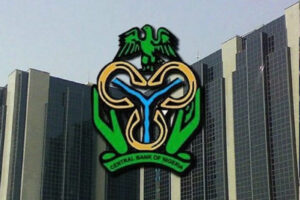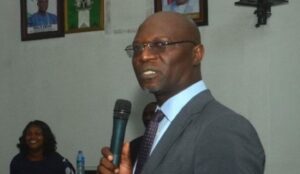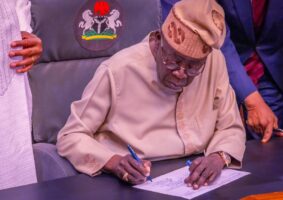The World Bank has urged the Federal Government to take swift action by reducing import tariffs and lifting restrictions on certain imported goods as part of efforts to curb the persistent rise in living costs.
World Bank Country Director for Nigeria, Mathew Verghis, said the recommended policy adjustments would help ease inflationary pressure and lower the country’s poverty rate. Speaking during a cable television programme monitored in Lagos, he warned that soaring prices continue to weaken the purchasing power of millions.
The latest Consumer Price Index (CPI) released by the National Bureau of Statistics (NBS) shows inflation slowing to 16.05 per cent in October, down from 18.02 per cent recorded in September—marking the seventh straight month of decline and the lowest level in three years. The data was published on November 17.
Despite this positive trend, Verghis cautioned that the World Bank still foresees rising hardship if inflation is not aggressively tackled.
“The reason we are projecting poverty to continue to rise in 2025, and possibly into 2026, is because inflation remains high enough that it is undermining household incomes, especially for the poor, because food inflation remains at around 20 per cent,” the World Bank director said.
READ ALSO: Cardoso To Lead Delegates To World Bank-IMF Meeting In US
He urged Nigeria to maintain momentum on structural reforms, noting that countries such as India and China achieved long-term stability through consistent policy adjustments over decades.
Read Also
“Nigeria has high tariffs and, in some cases, import bans on goods consumed by the poor… One way of lowering inflation quickly is to reduce some of these tariffs and take away some of these import bans,” he said.
On the foreign exchange situation, Verghis stated that strengthening external earnings remains one of the most effective ways to stabilise the naira.
He said: “The best way to keep the Naira stable is to make sure that your exports are increasing and your foreign direct investment is increasing.
“The primary objective is to get growth going, and a stable exchange rate that allows businesses to plan will contribute to that.”
Verghis also acknowledged progress in diversifying revenue sources.
“Nigeria is now, today, much less dependent on oil revenues than it was before,” he said, attributing the shift to improved exchange-rate alignment and the removal of petrol subsidies.
He added that rising non-oil revenue will expand the government’s capacity to invest in infrastructure and human capital. While describing Nigeria’s borrowing profile as relatively healthy—given its moderate debt-to-GDP ratio, he stressed that future loans must be used prudently to maximise their impact.





